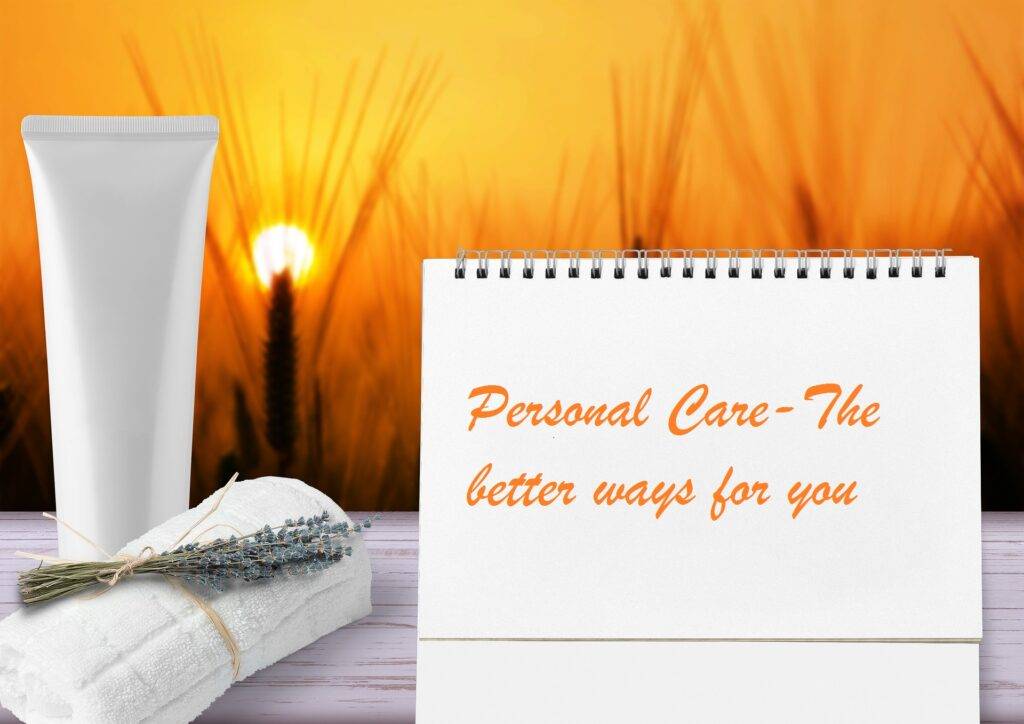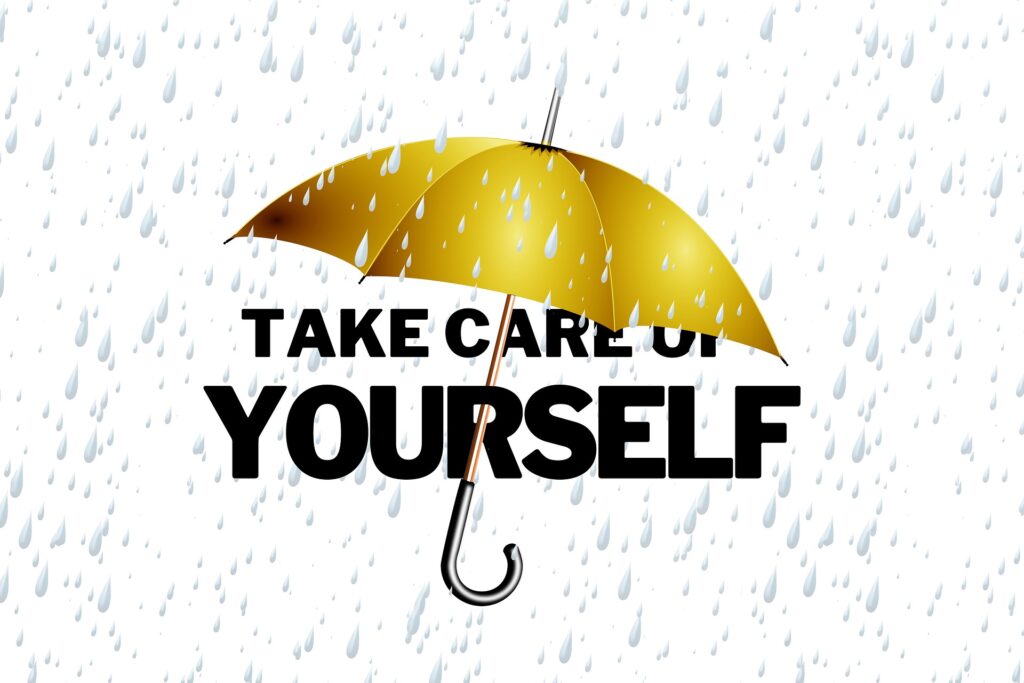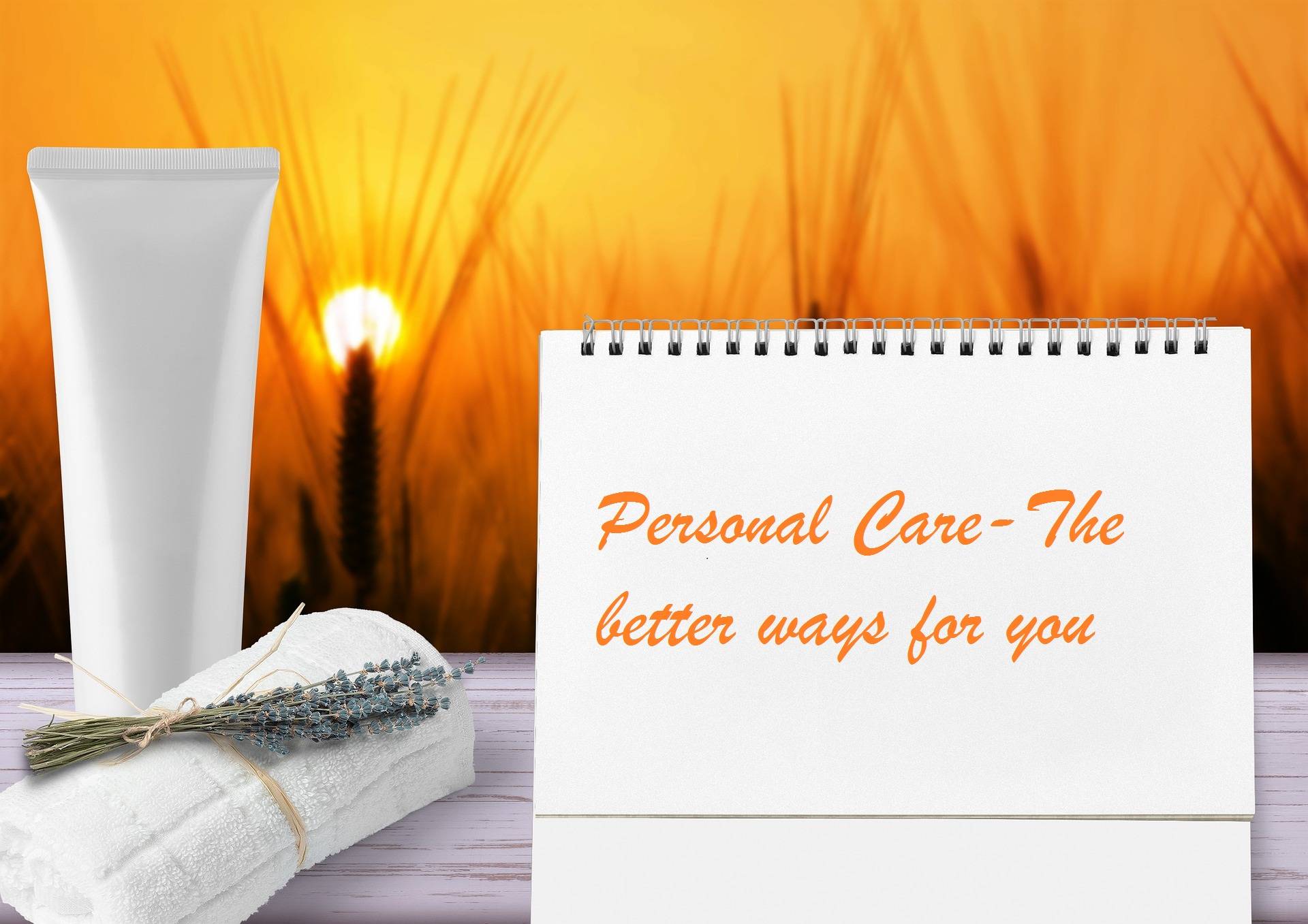Introduction
Personal Care is an important part of maintaining good health and lively life. It is a way of living that includes behavior that helps you to update yourself, supplement your motivation, and grow as a person.
Personal care is crucial to strengthening the resilience to the stressors of life that you cannot eliminate. When you take steps to take care of your mind and body, you are better equipped to live your best life.
sorry to say, some people perceive personal hygiene as a luxury and not a priority. As a result, they feel overwhelmed, tired, and ill-equipped to face life’s inevitable challenges.

PERSONAL CARE
Personal Care is Important?
It is so important that you take good care of your body, mind, and soul every day, not just when you get sick. Learning how to eat properly, reduce stress, exercise regularly, and take a break when necessary are self-relieving elements that can help you stay stress-free, stay healthy, and be resilient.
Personal Care-Why do we Often Fail?
Practicing self-care is not always easy. Most of us are busy, have stressful jobs, or are too busy with technology to take our time. Me-time is usually the last item on the agenda. Even worse, we can sometimes feel guilty if we take the time to take care of ourselves. Getting started with self-care can therefore be a challenge. In my new book Outsmart Your Smartphone: Conscious technical habits for finding happiness, balance, and connection IRL I teach people how to find time and how to create space for self-care. But here are some extra tips you won’t find in the book to help you get started on self-care.
Personal Care–How do you manage it?
Fortunately, there are many things you can do to take Personal Care of yourself. First, take this wellness quiz to find out which self-care strategies may be particularly useful to you. You can also read about self-care strategies, participate in self-care programs, or work with a coach or therapist to help you move forward. Whatever approach you take, the goal is to find out which self-care strategies are best for you, learn how to use these strategies, and put them into your normal routine so that you can improve your well-being today.
It is important to assess how you take Personal Care of yourself in different areas so that you can be sure that you are taking care of your mind, body, and spirit.
Here are some very important ways to start personal care.
Physical Self-Care
You need to take good care of your body if you want it to work effectively in your Personal Care. Remember that there is a strong connection between your body and your mind. When you take care of your body you think and feel better too.
Physical self-care includes how you strengthen your body, how much sleep you get, how much physical activity you do, and how well you take care of your physical needs. Attending meetings, taking medication according to the directions, and managing your health is part of good physical self-sufficiency.
When doing physical self-care, ask yourself the following questions to determine if some areas need improvement:
- Do you get enough sleep too?
- Does your diet feed your body well?
- Do you take responsibility for your health?
- Do you get enough exercise?
Social Self-Care
Socialization is the key to self-sufficiency. But it is often difficult to make time for friends and it is easy to ignore your relationships when life is busy.
Close connections are important for your well-being and also for you Personal Care. The best way to build and maintain close relationships is to invest time and energy in building relationships with others.
Young excited females walking on the city street, laughing and hugging
There is no specific number of hours you should spend with your friends or work with your relationships. Everyone has slightly different social needs. The key is to find out what your social needs are and to include enough time in your schedule to create an optimal social life.
Consider assessing your social self-sufficiency:
- Do you have enough personal time with your friends?
- What do you do to maintain relationships with friends and family?
Mental Self-Care
How you think and the things that fill your mind have a big impact on your psychological well-being.
Mental self-care means that you do things that keep your mind sharp, such as B. puzzles or learning something about a subject that fascinates you. You might read books or watch movies that inspire you to strengthen your mind.
Mental self-care also means that you do things that help you make sense. For example, if you exercise self-esteem and acceptance, you can have a healthier inner dialogue. All these will definitely help you to increase your Personal Care.
Here are some questions to consider when thinking about self-sufficiency:
- Do you have enough time for activities that stimulate you mentally?
- Do you do proactive things to make sense?
Spiritual Self-Care
Research indicates that a lifestyle, like spirituality or religion, is usually a healthy lifestyle and it helps to boost your Personal Care.
Taking care of your mind does not have to involve religion. It may be anything that assists you to develop a deeper sense of meaning, perceptive, or bond to the universe.
Whether you like to meditate, attend a worship service, or pray, spiritual self-care is important in your Personal Care.
As you think about your spiritual life, ask yourself:
- What questions do you ask yourself about your life and your experience?
- Do you participate in spiritual exercises that you consider to be satisfactory?
Emotional Self-Care
It is important to have sound, clear skills to deal with uncomfortable feelings such as anger, fear, and sadness. Emotional self-care can include activities that help you recognize and express your emotions regularly.
If you’re talking to a spouse or close friend about how you feel or taking the time to sort out your emotions, it‘s essential to integrate emotional self-care into your life.
When evaluating your emotional self-care strategies, consider the following questions:
- Do you have healthy methods of processing your emotions?
- Do you carry out life-long activities which will make you feel charged?
Know Your Value
Personal Care is vital to maintain a healthy association with yourself as it generates positive feelings and enlarges your self-confidence and self-esteem. Self-care is also necessary to remind yourself and others that you and your needs are also important.
A Healthy Work-Life Balance
Contrary to belief, work holism is not a virtue. Overtime and associated stress and fatigue can make you less productive, disorganized, and emotionally exhausted. It can also cause numerous health problems, ranging from anxiety and depression to insomnia and heart disease. Self-care habits such as regular breaks (for lunch, call your mom, or go for a walk), setting professional limits, avoiding stress. Avoid stress to keep yourself sharp, motivated, and healthy to maintain your Personal Care.
Managing Stress

Although a small dose of stress is a safe way to give us the boost that we need to meet deadlines or accomplish this delayed mission, excessive stress and anxiety can affect your mental and physical health. Through improving your mood and increasing your energy and self-confidence, intelligent self-care habits such as healthy eating, contact with a loved one or meditation reduce the toxic effects of stress.
Start living, avoid working: Life is a sacred blessing. So why waste if we have a more meaningful existence to choose from? Yes, you have lots of tasks: repairing the dryer, mowing the lawn, paying bills. It is however important to remember that taking care of yourself is your responsibility. Small things like drinking tea while watching the raindrops run through the window, enjoying a hot tub, or reading a book are important to your daily happiness. Although things like starting a new hobby or learning a new language can make your life more focused by giving you a new reason to get up in the morning.
Better Physical Health
It does not just concern mental health but we look at ourselves. It is also a concern to your self-care, taking a healthy diet, having enough sleep, your hygiene care, exercising regularly, etc.
And when you’ve read this far, you’re probably ready to get off the car. Here are ten simple, small self-care habits that everyone can cope with:
- Run or jog.
- Meditate on for five minutes or take a deep breath.
- Take a break when you need it.
- Choose who you spend time with.
- Laugh heartily at least once a day.
- Eat green every day.
- Avoid emotional eating.
- Start a diary.
- Learn to say “no”
- Stop thinking.
Make Sleep a part of Your Personal Care
Sleep can have a huge impact on how you feel both physically and emotionally. Not getting enough can even cause considerable health problems. But stress and other distractions can seriously damage our sleep.
What do you do to get some sleep in your self-care?
Think about your nightly routine. Do you eat or drink just before bed? In this case, it is especially important to stay away from caffeine and sugar, which you often keep awake.
Reducing stress is also key. If you have work-related stress, think about how you can best relax after a hard day or relax more at work. You should negotiate to reduce the workload with the boss, or settling a disagreement with a colleague.
Then make sure your bedroom is the best place for good REM sleep. There must be no distractions (eg TV, laptop, mobile phone, etc.). And make sure you have curtains with blackouts so the sun won’t wake you up early in the morning.
Eat well for Self-Care
The foods we eat can keep us healthy or contribute to weight gain or diseases like diabetes, but it can also keep our minds functioning and awake. Eating the right foods can help prevent short-term memory loss and inflammation, both of which can have long-lasting effects on the brain and therefore on the rest of the body. The most amazing self-care products include oily fish, blueberries, nuts, leafy vegetables, and cabbages like broccoli.
Say no to others and yes to Your Self Care
Learning to say no is really hard; Many of us feel obliged to say yes when someone asks about our time or energy. But if you are already stressed or overworked, yes to loved ones or colleagues can lead to burnout, anxiety, and irritability. It may take some practice, but when you politely learn no you will feel stronger and have more time for self-care.
Take a Trip to Self-Sufficiency

A journey to self-sufficiency can make a big difference in your life. Even if you do not feel particularly stressed, a temporary weekend trip can help you relax, relax and rejuvenate. These self-catering trips don’t have to be expensive; Just drive to the nearest town and see the sights or camp nearby. The goal is to deviate from your usual schedule and take the time to do something for yourself.
Plan your Self-Care Time and Monitor this Time with everything You have
It can be difficult for all of us to find additional time. However, it is extremely important to schedule time for self-care regularly. Moments can help you think about the best ways to move forward in your life and stay on the ground. And time spent with friends can help out you feel more connected and stress-free.
While an introduction prior to a counseling meeting, male patient and female doctor should shake hands. The doctor sits down on the sofa in her room while holding a clipboard and wearing a lanyard.
Whether you take a long walk, take a hot bath or enjoy a good movie with friends, it is important to take care of yourself. Look for small ways to integrate it into everyday life. For example, you can wake up fifteen minutes earlier, sit down with a cup of tea and take a deep breath before the day’s chaos begins, or take a walk around the neighborhood during your lunch break. The more self-care time you can include in your schedule, the better you can grow, enjoy and thrive.
Develop Your Self-Care Plan
- Self-care is not a strategy that suits everyone. Your self-care plan should be adapted to your needs.
- A self-care plan for a busy student who is constantly mentally excited and has a lively social life may need to emphasize physical self-care.
while a pensioner may need to involve more social self-care. - Evaluate which areas of your life need a little more attention and self-care. And rework your life often. If your situation changes, your self-care situation will probably also change.
- If you find that you are neglecting one aspect of your life, plan for change.
- You don’t have to do everything at once. Find a small step you can take to take better care of yourself.
- Then plan time to focus on your needs. Even if you feel that you do not have time to indulge, make yourself a priority.
- If you take care of all aspects of yourself, you will find that you can work more efficiently and effectively.
============================
Please also Read this article
If you are health conscious, then you must check out the following amazing products
The ultimate keto plan, Negative Ions Sticker-protect your family, Smart Blood Sugar, The Essential Keto cook book, Lean Belly, Doctor’s Book of Survival Home Remedies, Custom Keto Diet, The Back Pain SOS, Cleaner Smile Teeth, The Lose Your First 10 Lbs, Nutrition Guide, Meal Planner










